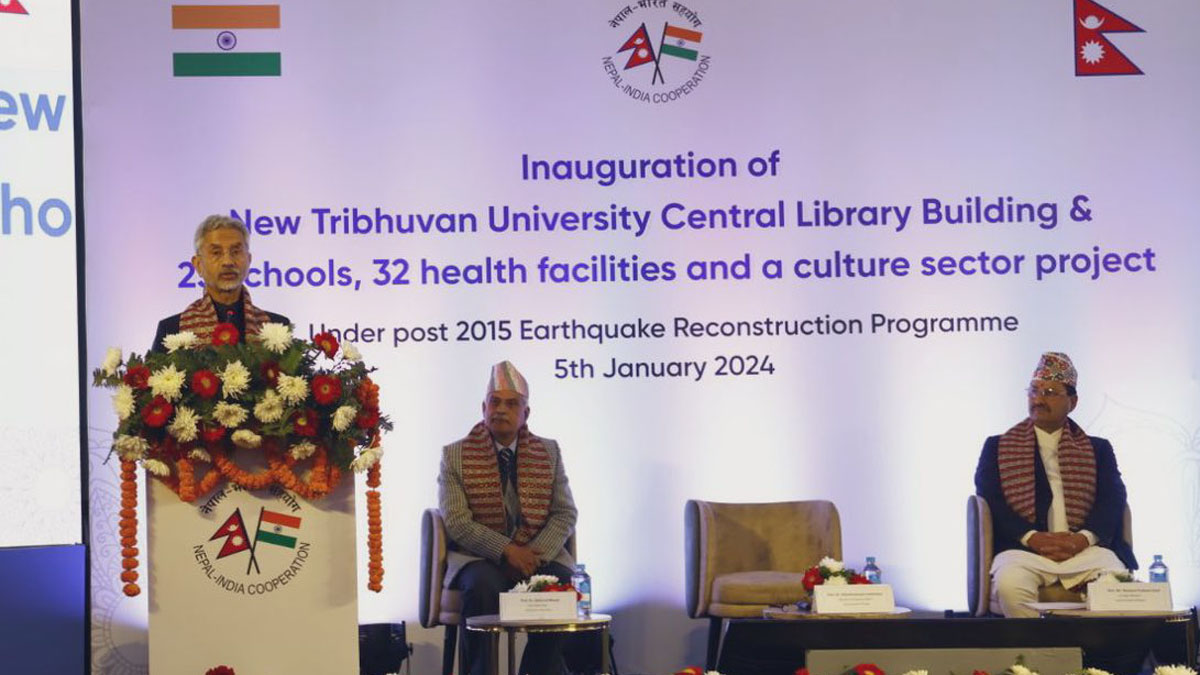India’s Minister of External Affairs, Subrahmanyam Jaishankar, has declared that the substantial agreements recently inked with the government of Nepal are poised to yield positive outcomes for the people of Nepal. The announcement came during the handover ceremony of a newly constructed library for Tribhuvan University in Kirtipur, a project undertaken with India’s assistance.
Highlighting the significance of the agreements, Jaishankar expressed optimism about their impact on the lives of the Nepali people. “Throughout my visit, we have forged pivotal agreements in the field of energy cooperation and project implementation,” he stated. “I am confident that it will have a positive impact on the lives of the Nepali people.”
The Minister deemed his visit successful and extended gratitude to Foreign Minister NP Saud and his team for their efforts in strengthening the relationship between Nepal and India. He emphasized the progress made in various fields in recent years, attributing the positive developments to the vision of Indian Prime Minister Narendra Modi, particularly in redefining relations with neighboring countries, including Nepal.
Recalling Prime Minister Modi’s visit to Nepal in 2014, Jaishankar referred to the “HIT” formula presented by Modi for Nepal-India relations: H-Highway, I-Iways, and T-Transways. This formula, focusing on infrastructure and technology, laid the foundation for a robust bilateral relationship.
Jaishankar also acknowledged the recent visit of Nepal’s Prime Minister Pushpa Kamal Dahal ‘Prachanda,’ stating that the leaders of both countries made significant decisions, elevating the relationship to a ‘super-hit’ level.
Reaffirming India’s commitment to the “sabka-saath-sabka-vikas-sabka-vishwas-sabka-prayas” ideal, Jaishankar emphasized the intention to include various neighboring countries, including Nepal, in India’s development journey.
During Jaishankar’s visit, four key cooperation agreements were signed between Nepal and India. These include a long-term electricity trade agreement, an increase in funding under the High Impact Community Development Project (HICDP), support for Nepal’s Munal satellite launch, and collaboration in renewable energy development. These agreements are expected to strengthen the bilateral ties and contribute to the overall development and prosperity of both nations.














Comments